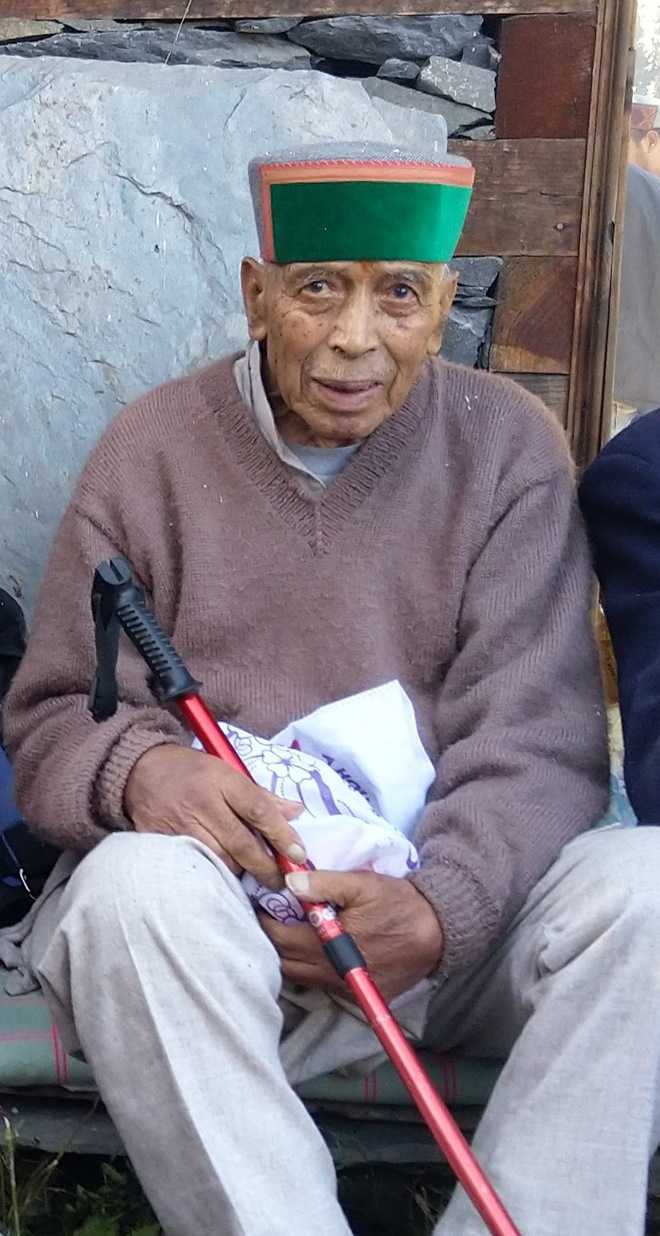Shriniwas Joshi
Folklorist, linguist, observer of life in the hills… In Molu Ram Thakur’s death last month, we lost a chronicler of Himachal Pradesh. What remain with us are his books — on culture, language, way of life, nature and even on flora and fauna of the state. He was 91.
Molu Ram Thakur was born to Budh Ram Thakur at village Shanghan in Lug Valley of Kullu district on June 18, 1928. A brilliant student right from the beginning, he did MA in Political Science, Honours in Hindi and held diplomas in Chinese and Tibetan languages. He served in various capacities at the State Language and Culture Department, which opened a window for him to study folk life, language, art and culture. He wrote both in English and Hindi and had been the editor of a research-based journal, Somsi, and another, Himbharati, brought out by the state Art, Language and Culture Academy. The staff of the Academy calls him its Ambedkar, for, he had drafted the constitution of the Academy.
- He was a champion of Pahari and wrote various books supporting the cause of the language
He was a great champion of Pahari language and wrote books like Pahari Bhasha and Himachali supporting the cause of Pahari. He believed that the reorganisation of Punjab, formation of greater Himachal and grant of full statehood to it were based on one language, one state; and that Himachal is formed on the basis of one language and that is Pahari. He gave concrete evidences in support of his belief in Pahari langauge. He was honoured and awarded by the Uttar Pradesh government for writing this humongous work running into 15 chapters. He didn’t espouse Pahari alone. His book, An Easy way to Hindi and Hindi Grammar, was adjudged one of the best books of Hindi teaching through English medium. He was honoured with the Bhasha Samman by the Sahitya Akademi in 1996.
His interest in the folk theatre of Himachal Pradesh fanned his urge for writing a reference book on it. Speaking at a seminar on folk theatre held at Dhami in 1956, he had said, “If our folk theatre is written like other plays, it would put a check on the vulgar language spoken therein and the portions that bore the audience would also be chiselled. But it will definitely be hostile to the independence and originality of the actors. An actor has better chances of showing his histrionics if he speaks impromptu and can produce miracles on the stage. Karyala or any folk theatre is the form of entertainment of the rural folk and so must retain the smell of the village and the local dialect.” His book on the subject, Himachal ke Loknatya aur Lokaranjan, covers the total folk theatres of Himachal. I too often quote from this book published in 1981. Incidentally, Molu Ram Thakur was my deputy when I headed the Language and Culture Department in Himachal. I had great respect for his vast knowledge of the culture of the state. I owe my success as director of the department to his frank and honest opinion whenever I sought it.
Molu Ram’s scholarship was acknowledged by various awards and honours, among them the countless lifetime achievement awards bestowed on him in the last few years.
Unlock Exclusive Insights with The Tribune Premium
Take your experience further with Premium access.
Thought-provoking Opinions, Expert Analysis, In-depth Insights and other Member Only Benefits
Already a Member? Sign In Now











